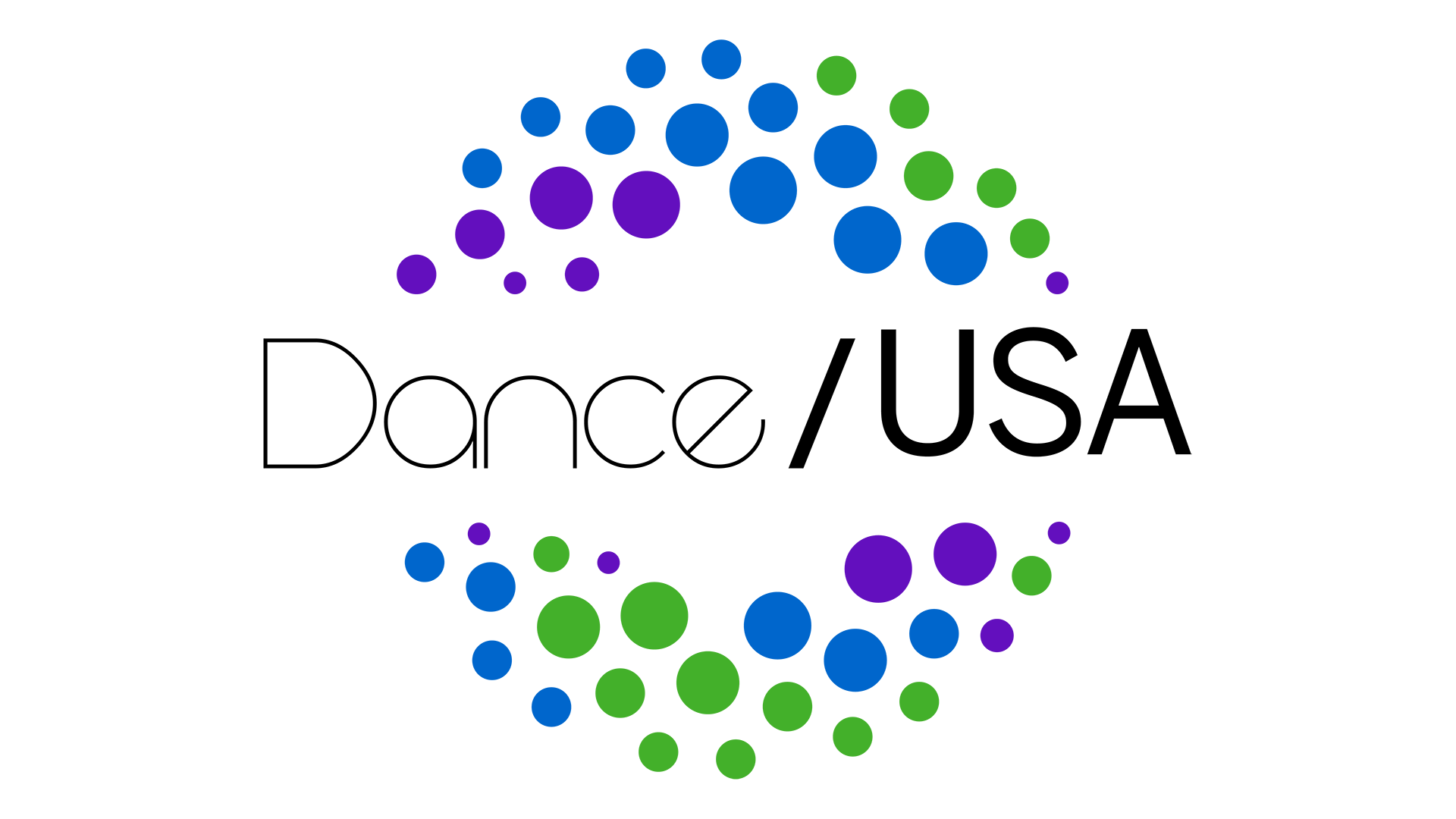By Brandon Gryde
For the first time in a few years, this fall update is not as dire as it has been in the past. Funding proposals for the National Endowment for the Arts are relatively stable and there is no looming fiscal cliff. However that doesn’t mean that we should take a break on our advocacy. In fact, this is a key time to educate our lawmakers about the issues that impact dance and the performing arts as an integral part of moving the needle on policy and legislation. The time should be spent now on building relationships before being confronted by critical emergencies.
National Endowment for the Arts
The President’s proposed Fiscal Year 2015 budget for the National Endowment for the Arts was slightly lower than last year’s at $146 million. It is level with the current year’s budget, as the overall budget had to fit within the parameters set by the Budget Control Act. However, the big surprise this year was the budget passed by the House of Representatives. In July, the House Interior Appropriations Subcommittee approved funding the NEA at $138 million, $8 million less than current funding, but in line with FY2013 post-sequestration funding. Yet just a week later, the full House Appropriations Committee restored the NEA’s FY15 budget to $146 million. While the committee may have been trying to clear “easy” line items out of the way in order to address more complicated budget concerns (such as the Environmental Protection Agency), this bipartisan support represents a major shift from last year’s proposal to cut the NEA’s budget in half. Dance/USA appreciates your advocacy on this issue, but the need to educate lawmakers continues. It’s expected that Congress will pass another continuing resolution that will carry the budget through December. The dance and arts communities still have ample time to share the value the NEA brings to communities. You can contact your legislators on support for the NEA by visiting the Performing Arts Alliance.
Funding from the National Endowment for the Arts (NEA) has such crucial importance for the entire arts community. Because of its national scope, the NEA provides a unique imprimatur that allows its grantees to leverage funding from many other sources — not only other government agencies but also private sources. Because of the NEA’s support, our organization has been able to create new works and provide educational programs that otherwise would not have been possible.
— Matt Wells, Diavolo, Los Angeles, Calif.
International Programs
While it remains unclear how much the U.S. Department of State allocates toward artistic cultural exchange programs, Dance/USA continues to work with the Cultural Exchange Working Group to advocate for increased support. Programs such as the Arts Envoy Program and DanceMotion USA provide incredible opportunities for our nation to use dance and the arts to help embassies abroad address complex cultural issues in a way that more aggressive diplomacy cannot. Dance/USA also regularly presents to Cultural Affairs Officers (CAOs) at the State Department’s training center in Virginia, sharing ways that Dance/USA can serve as a resource for CAO s, helping them get in touch with dancemakers in the U.S.
Last fall, just 10 days after missiles were launched from Syria into Israel, Stephen Mills, 30 Ballet Austin dancers and crew/staff members arrived in Israel for a three-week tour of Light/The Holocaust & Humanity Project. As a human rights project, the artists spent their days expanding their knowledge of the Holocaust and its historical context, visiting Yad Vashem and meeting with Israeli dancers and dance makers. The evenings were devoted to performances in Western Galilee, Tel Aviv and Jerusalem, and the most important aspect of the tour … receiving hospitality and developing long-term relationships with the extraordinary people of Israel. Following the performances, Stephen and the dancers engaged each audience directly in the most frank and probing dialogue, never to be forgotten. Cultural exchange opportunities provide artists with a framework for deep exploration, and the power to reach deeply and effectively across perceived barriers.
— Cookie Ruiz, Ballet Austen, Austin, Texas
We also work closely with the Performing Arts Visa Working Group to improve visa processing times at U.S. Citizenship and Immigration Services (USCIS). Earlier this year, the issuance of Requests for Evidence (RFEs) increased. Dance/USA has joined USCIS stakeholders meetings and shared our concerns around this issue.
Actionable Items
- Has your company participated in international cultural exchange? Please send us your story about the impact this experience had on your company and the communities you visited. These stories help us advocate on the value of cultural exchange.
- Have you received one or more RFEs? If there’s an opportunity for Dance/USA to submit a report to USCIS, concrete examples where the petitioner clearly submitted all the necessary information helps us in our advocacy.
- For each of these issues, please send your experiences to advocacy@nulldanceusa.org.
Charitable Giving Incentives
Usually, this is the section where I share information about the charitable deduction. Currently, I’ve been spending more time on reinstating the IRA Charitable Rollover provision, an incentive that allows individuals age 70 ½ and older to make up to $100,000 in tax-free contribution to charities directly from their IRA accounts. This provision, one of the 55 expired tax extenders, expired at the end of 2013. Dance/USA, as a member of Independent Sector and the Charitable Giving Coalition, has been working with both arts and non-arts national organizations urging Congress to reinstate and make permanent this tax provision that has benefitted numerous nonprofits in all sectors.
Earlier this year, the Senate took the approach of temporarily reinstating all extenders, with one proposal reinstating the IRA rollover through 2015 and retroactively for 2014. Last July, the House passed the America Gives More Act (H.R. 4719), a package of five charitable provisions that would make permanent the IRA rollover and would extend through April 15 the deadline for claiming charitable donations on the previous year’s tax filing. We continue to work with the national nonprofit community to urge the Senate to consider this bill.
While additional efforts were spent on the IRA rollover, House Ways and Means Committee Chairman Dave Camp (R-MI) released a tax reform draft earlier this year that proposed some limits to the deduction and included additional proposals around the standard deduction and Unrelated Business Income Tax (UBIT) that could alter the way nonprofits operate. The Senate Finance Committee Chairman Ron Wyden (D-OR) may want to tackle tax reform before the end of 2015. While he has a history of supporting the charitable sector, ongoing opportunities to educate our lawmakers with our own real-life examples remain critical.
Actionable Item:
If the Senate takes up H.R. 4719, it won’t be until after the midterm elections, during the lame duck session. This continues to be a critical time for nonprofit dance companies to contact their senators and share with them how important continuity is toward developing relationships with potential donors who can help sustain a vibrant nonprofit sector. Visit the PAA to send your senators a personalized letter.
How We Work
Dance/USA represents our members through direct lobbying and through participating in numerous coalitions. We work with a variety of arts coalitions including the Performing Arts Alliance (Dance/USA is a founding member); the ad hoc Cultural Advocacy Group; and as a National Sponsor and member of the Legislative Planning Committee for Arts Advocacy Day. We work on nonprofit issues with Independent Sector and the Charitable Giving Coalition. Additionally, we participate in numerous working groups focused on international arts issues, protection of wireless microphone users in the performing arts, and support for arts education at the U.S. Department of Education.
If you would like to receive regular updates from Dance/USA, please consider joining the Dance Advocacy Network. The Dance Advocacy Network provides updates on our work on policy and legislation, letters where we serve as signatories, and additional opportunities for national advocacy. Please email advocacy@nulldanceusa.org to join.
 Brandon Gryde is director of government affairs for both Dance/USA and OPERA America. Prior to that he served two years as director of communications for Youth Service America, an international youth engagement organization, where he worked to increase awareness about the positive impact children and youth make in their communities through service and service-learning. Prior to moving to Washington, D.C., Brandon spent more than seven years at Jump Street, an innovative community arts organization in Harrisburg, Pa. He managed a state re-granting initiative in partnership with the Pennsylvania Council on the Arts and launched AND Magazine, a quarterly arts and healthy lifestyles publication written by teens, for teens. Brandon has a B.A. in Ethnomusicology and American Literature and Culture from UCLA and an M.A. in American Studies from Penn State.
Brandon Gryde is director of government affairs for both Dance/USA and OPERA America. Prior to that he served two years as director of communications for Youth Service America, an international youth engagement organization, where he worked to increase awareness about the positive impact children and youth make in their communities through service and service-learning. Prior to moving to Washington, D.C., Brandon spent more than seven years at Jump Street, an innovative community arts organization in Harrisburg, Pa. He managed a state re-granting initiative in partnership with the Pennsylvania Council on the Arts and launched AND Magazine, a quarterly arts and healthy lifestyles publication written by teens, for teens. Brandon has a B.A. in Ethnomusicology and American Literature and Culture from UCLA and an M.A. in American Studies from Penn State.
____
We accept submissions on topics relevant to the field: advocacy, artistic issues, arts policy, community building, development, employment, engagement, touring, and other topics that deal with the business of dance. We cannot publish criticism, single-company season announcements, and single-company or single artist profiles. Additionally, we welcome feedback on articles. If you have a topic that you would like to see addressed or feedback, please contact communications@danceusa.org.
Disclaimer: Opinions expressed in guest posts do not necessarily represent the viewpoints of Dance/USA.



